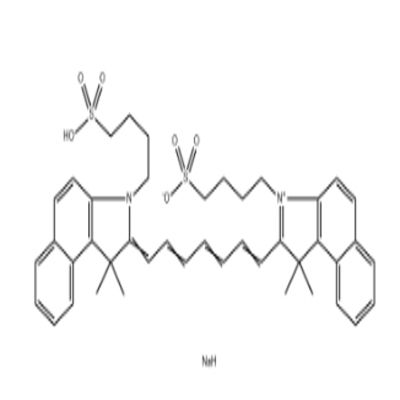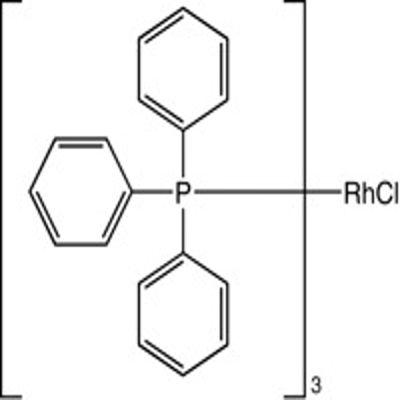-
Categories
-
Pharmaceutical Intermediates
-
Active Pharmaceutical Ingredients
-
Food Additives
- Industrial Coatings
- Agrochemicals
- Dyes and Pigments
- Surfactant
- Flavors and Fragrances
- Chemical Reagents
- Catalyst and Auxiliary
- Natural Products
- Inorganic Chemistry
-
Organic Chemistry
-
Biochemical Engineering
- Analytical Chemistry
- Cosmetic Ingredient
-
Pharmaceutical Intermediates
Promotion
ECHEMI Mall
Wholesale
Weekly Price
Exhibition
News
-
Trade Service
On November 19th the New England Journal (NEJM) published an article on a clinical trial of the type 1 diabetes type 1 diabetes in Johnson and Johnson Golimumab.
phase II clinical trial results showed that compared to the placebo group, Golimu monoantigen can significantly reduce the amount of insulin used in patients, indicating that the application of golimu monoantigen can promote the production of more endoensitive insulin in the patient.
type 1 diabetes is an autoimmune disease characterized by the gradual loss of islet B cells, leading to lifetime dependence on insulin therapy.
more than 13 million people worldwide are affected by type 1 diabetes, with the incidence increasing at a rate of 3 to 4 per cent per year.
even with significant technological and pharmaceutical advances, metabolic control in people with type 1 diabetes remains challenging and limited, and preventing or delaying β cell loss can be beneficial.
, a tumor necrotizer (TNF)-α inhibitor, was approved by the FDA in 2013 and has sales of $2.19 billion in 2019. That's up 5 percent from 2018, with U.S. sales of $1.16 billion in 2019, or about 53 percent of global sales, up 10.2 percent in 2018-19 and U.S. patents due in 2024.
Golimu monoantigen is currently developed in two dosage forms: the epidermal injection type SIMPONI®, which treats people with moderate to severe rheumatoid arthritis, active psoriasis arthritis, active strong scoliosis or moderate active period to severe Adult patients with active ulcerative colitis; intravenous dosage form SIMPONIARIA® (golimumab) for intravenous treatment of moderate to severe rheumatoid arthritis, active psoriasis arthritis, or active or strong scoliosis in adults.
The Phase II clinical trial published this time was multi-center, placebo-controlled, double-blind, parallel trial in which 84 people were diagnosed with type 1 diabetes in children and adolescents (age range, 6 to 21 years old). The subjects in the
trial group and the placebo group were assigned a ratio of 2:1, 56 subjects in the experimental group received under-skin injections of golimu monoantigen, and 28 subjects in the placebo group were given a placebo-based injection for a 52-week trial period.
main endpoint: source insulin production within 52 weeks, based on: C peptide AAUC (sub-curve area) calculated from the 52-week, 4-hour mixed dietary tolerance test (MMTT).
4-hour C peptide AAUC stimulated by the dietary tolerance test (MTT) was the average area under the C peptide level-time curve within 4 hours divided by the duration of the mixed dietary tolerance test.
secondary endpoints include insulin use, glycation hemoglobin levels, the number of hypoglycemia events, changes in the ratio of peri-abdominal insulin to C peptides over time, and reactions.
week 52, there was a significant difference between the average of 4-hour C peptide AAUC (0.64±0.42pmol/ml) and the placebo group (0.43±0.39pmol/ml).
blood sugar control was good in both the Golimu monoantigen group and the placebo group, and there was no significant difference in glycation hemoglobin levels between the two groups.
insulin use was lower than in the placebo group.
a statistically significant response was observed in 43 percent of subjects in the Golimu monoantigen group and 7 percent in the placebo group.
partial remission reaction is defined as insulin dose-adjusted glycoglobin level score ≤9, calculated with glycation hemoglobin level plus insulin dose x4.
not the first immunosuppressant to be clinically developed for diabetes, Lilly paid MarcroGenics $42 million in 2013 for the type I diabetes drug anti-CD3 antibody teplizumab.
a Phase III trial that followed, the Independent Monitoring Committee concluded that teplizumab had failed to meet its efficacy targets, after which Lilly suspended and abandoned further development of teplizumab.
addition, anti-CD3 monoantigen Otelixizumab and Roche Lytoxi monoantigen have been clinically studied for type 1 diabetes.
Lilly and Cynda jointly developed the PD-1 heavy drug - Cyndili monoantitor in October this year was reported in the literature present immune-related diabetes, or because Cyndili monoantitor by binding to PD-1 and blocking the combination of PD-L1 and PD-L2, to remove the immunosuppressive effect, prompting immune cells to cause damage to islet B cells.
Overall, immune cells play a key role in islet B cell damage, diabetes is an incurable disease in current cognition, and with the further development of scientific research and medical technology, a key way to prevent islet cell damage or repair may be possible in the future.
on the road to the ultimate goal, immunosuppression or new directions in diabetes drug development.







